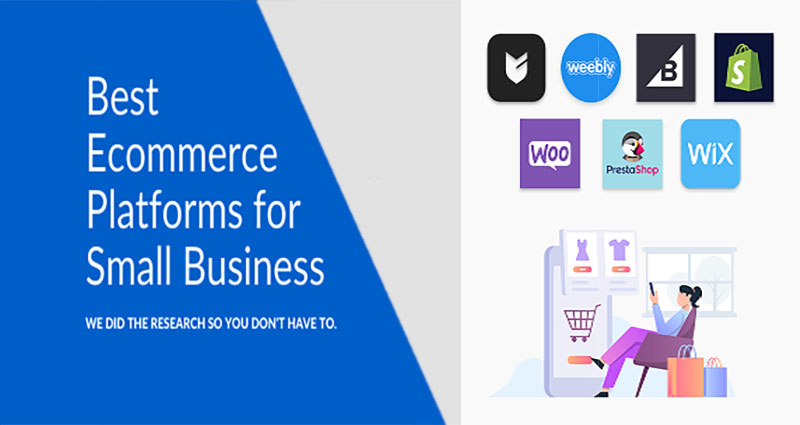When deciding which ecommerce platform is best for your small business, consider the features and capabilities of each. Squarespace and Shopify have both won our awards for ease of use, but each has their own strengths and weaknesses. These reviews will give you an idea of the pros and cons of each platform. The following are some of the features you should look for in each option. If you’re just getting started and need some help choosing the right one, read on.
Shopify
If you want to start an ecommerce store but are unsure where to start, Shopify is the best ecommerce platform to use. It has a simple signup process that doesn’t ask you for a lot of information at each stage. You only need your name, email address, and password. Once you’ve set up your store, Shopify will ask you questions to help it understand your business better and optimize it for the search engines.
If you have no technical knowledge, Shopify has a simple and intuitive interface that will help you set up your store and start selling within minutes. The platform also supports a wide variety of credit card payments and is PCI compliant level 1 and features 256-bit SSL encryption to protect your customers’ information. It also has a number of useful apps that will help you market your online store, such as a subscription system.
BigCommerce
The BigCommerce ecommerce platform is a leading solution for launching online stores. The platform is easy to use, and offers a comprehensive feature set for a low price. It is able to handle a variety of features, including selling in multiple currencies, and is compatible with numerous payment gateways. Unlike Squarespace and Shopify, BigCommerce doesn’t charge any transaction fees to use third-party payment gateways. Additionally, BigCommerce makes it easy to add custom fields to your online store.
The security features offered by BigCommerce are impressive. SSL security certification is built- in, and the platform offers encrypted online payments. The platform is also Level 1 PCI DSS compliant, meaning it complies with all six categories of standardisation. BigCommerce also maintains a secure network and implements strong access control measures. BigCommerce also has extensive integration options with payment gateways. However, it is important to do your own research to see which solutions are best for your needs.
Squarespace
In addition to its easy-to-use interface, Squarespace ecommerce also has a variety of useful features. The Squarespace Inventory panel, for example, offers tools for managing inventory. Customers can subscribe to your newsletter directly in the checkout process. You can also create announcement bars that send updates to your site visitors. And with built-in analytics, you can see how well your products are performing. If you’re not sure whether Squarespace is the right choice for your business, you can try out the platform with a free 14-day trial.
A downside to Squarespace is that it doesn’t offer phone support. However, Squarespace emphasizes visual support over audio. The Help Center features webinars and video tutorials. Additionally, you can hire Squarespace Experts to assist you. While Squarespace’s pricing plan is competitive, it can be overwhelming for those without web development experience. However, if you don’t want to learn HTML or CSS, you can try the free trial to see if Squarespace is right for you.
WooCommerce
The free version of WooCommerce allows you to sell as many products as you want. WooCommerce is a powerful solution for building an online store, and can help you scale up or down depending on the features you want. It also supports unlimited visitors and products.
However, it does require some infrastructure, including a web host. Here are some advantages of using this platform for your small business. Its ease of use and versatility make it a great choice for those looking to start a store.
The platform allows merchants to manage their customers’ information. They can apply billing information and shipping statuses, and manage customer information, including refunds and in- store accounts. With WooCommerce, you can track profits and determine which customers return to purchase products. You can even set up in-store accounts for customers to keep track of their orders and make future purchases easier. WooCommerce is an excellent choice for small businesses.
Ecwid
Ecwid’s customer support is a top priority, and it is available 24 hours a day. The company offers live chat and email support, as well as forums for its users. If you need more help, you can choose to upgrade to the paid Unlimited or Venture plans. If you’re looking to save money, the premium plan offers phone and email support, as well as priority support. Customers are able to chat with live agents in seven different languages.
Setting up an account with Ecwid is free and easy. It only requires an email address and a password to sign up, and they have integration wizards for every platform. For example, you can easily integrate Ecwid into your WordPress site with the help of a simple three-step wizard. The same goes for Joomla and Facebook sites. You can customize your storefront with your own brand elements, so it’s easy to market and sell to the international audience.











